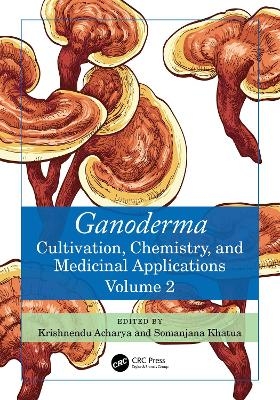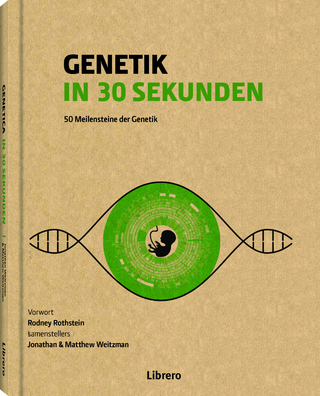
Ganoderma
CRC Press (Verlag)
978-1-032-79033-6 (ISBN)
For the past two millennia, Ganoderma has been prized as the "mushroom of immortality" in ancient Asian cultures, owing to its health benefits. Modern research has further revealed that the genus is rich in bioactive components, including polysaccharides and triterpenoids, uncovering various medicinal prospects both in vitro and in vivo. Clinical trials conducted so far have emphasized the safe and effective use of the mushrooms, with a particular focus on Ganoderma lucidum. Currently, the Ganoderma-based industry is witnessing a significant surge, offering a plethora of dietary and medicinal products. Recognizing the impact of these developments, the book Ganoderma: Cultivation, Chemistry, and Medicinal Applications Volume 2 aims to consolidate the latest information on the macrofungi, emphasizing its bioactive compounds, diverse therapeutic effects, and industrial applications.
Key Features:
This book provides a thorough exploration of Ganoderma polysaccharides, unraveling their chemical composition, structure, and potential health benefits.
Comprehensive coverage is provided to understand antimicrobial properties of the medicinal mushrooms. The text also delves into the potential role of Ganoderma in safeguarding against various skin diseases, accompanied by discussions on underlying mechanisms.
A detailed examination of Ganoderma includes its potential cardioprotective effects, encompassing impacts on blood pressure, cholesterol level, and overall heart function. This book also provides an in-depth analysis of the capacity of the macrofungi to stimulate the immune system.
The volume encompasses findings related to the impact of Ganoderma on prevention or mitigation of neurodegenerative diseases.
Additionally, it contributes to the understanding of medicinal applications by exploring Ganoderma-based nanoparticles, offering novel insights into potential therapeutic avenues.
A comprehensive overview of the Ganoderma-inspired industry highlights its diverse contributions ranging from dietary supplements, cosmeceuticals, and nutricosmetics to healthcare products.
Prof. Krishnendu Acharya pursued Master’s degree in Botany from the University of Calcutta. He then completed his M.Tech. and Ph.D. from Jadavpur University. Prof. Acharya joined the University of Calcutta as Lecturer of Botany in 2004 and soon acceded to Professorship in 2012. Till date, he has supervised 22 Ph.D. students and published 475 research articles and 9 books. He has 9,555 Scopus citations and 13,390 Google Scholar citations. His h‑indexes are 50 (Scopus) and 59 (Google Scholar), while his Google Scholar i10 index is 259. He was ranked first among top 100 authors of state universities based on Indian Citation Index 2016 by Confederation of Indian Industry (CII). He has been listed on Elsevier’s (Stanford University) list of the world’s top 2% of scientists for the last 4 years. Prof. Acharya has been elected as a Fellow of the West Bengal Academy of Science and Technology, the Linnean Society of London, the Mycological Society of India, the Indian Mycological Society, and the International College of Nutrition, Canada. He has received many awards, including the Sir Edwin John Butler Memorial Award, the Patel Memorial Award, the Global Achievement in the Field of Phyllosphere Biology, and the Prof. K. Natarajan Memorial Award. He is in the editorial boards of many national and international journals. Prof. Acharya is actively and regularly engaged in lecturing at different seminars, universities, and colleges to boost young minds and inspire students. Dr. Somanjana Khatua is an Assistant Professor in the Department of Botany, University of Allahabad, Uttar Pradesh, India. She pursued her Master’s degree in Botany and Ph.D. from the University of Calcutta. Earlier, she was appointed by West Bengal Education Service and posted in Krishnagar Government College. The areas of her research interest include drug development, immunology, carbohydrate biology, natural products, medical mycology and functional food. Till date, she has published 80 papers in different peer‑reviewed journals such as Current Research in Biotechnology, Phytotherapy Research, Biodegradation, Chemico‑Biological Interactions, Food and Function, Frontiers in Pharmacology, Scientific Reports, PLoS One, Journal of Pharmacy and Pharmacology, PeerJ, Carbohydrate Polymers, Carbohydrate Research, and International Journal of Biological Macromolecules. She has 72 papers in Scopus and 1,448 Scopus citations as well as 1,905 Google Scholar citations. Her h‑indexes are 23 (Scopus) and 27 (Google Scholar), while her Google Scholar i10 index is 46. She has received many awards such as Woman Botanist Award 2020 from Indian Botanical Society and Outstanding Paper Award by the Government of West Bengal, India. She has been listed among the top 2% of scientists (rank in a single year 560391) in Elsevier (Stanford University) ranking. She delivers many invited lectures in different colleges across India.
1 Polysaccharides from Ganoderma: Extraction, Chemical Features, and Bioactivity; 2 Ganoderma: Antibacterial Effectiveness and Future Scope; 3 Recent Updates on Antiviral Efficacy of Ganoderma lucidum; 4 Ganoderma as a Potential Source of Antifungal and Antiparasitic Agents; 5 Ganoderma in Skin Health Care: A State-of-the-Art Review; 6 A Protective Role of Ganoderma sp. on Cardiovascular Disease, Atherosclerosis, and Hypertension; 7 Insights into the Potential of Ganoderma as an Immune-Stimulatory Agent; 8 Beneficial Effects of Ganoderma spp. on Neurodegenerative Diseases; 9 Nanoparticles Synthesized by Ganoderma and Its Medicinal Applications; 10 Development and Emergence of Ganoderma-Based Industry: A Global Perspective; 11 Bioactivity of Some Less Explored Ganoderma spp.
| Erscheinungsdatum | 10.07.2024 |
|---|---|
| Zusatzinfo | 18 Tables, black and white; 23 Line drawings, black and white; 23 Illustrations, black and white |
| Verlagsort | London |
| Sprache | englisch |
| Maße | 178 x 254 mm |
| Gewicht | 612 g |
| Themenwelt | Naturwissenschaften ► Biologie ► Genetik / Molekularbiologie |
| Technik ► Lebensmitteltechnologie | |
| Technik ► Umwelttechnik / Biotechnologie | |
| ISBN-10 | 1-032-79033-4 / 1032790334 |
| ISBN-13 | 978-1-032-79033-6 / 9781032790336 |
| Zustand | Neuware |
| Haben Sie eine Frage zum Produkt? |
aus dem Bereich


